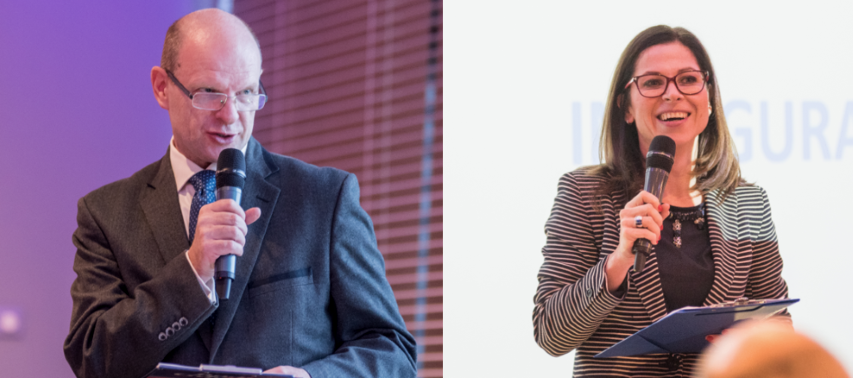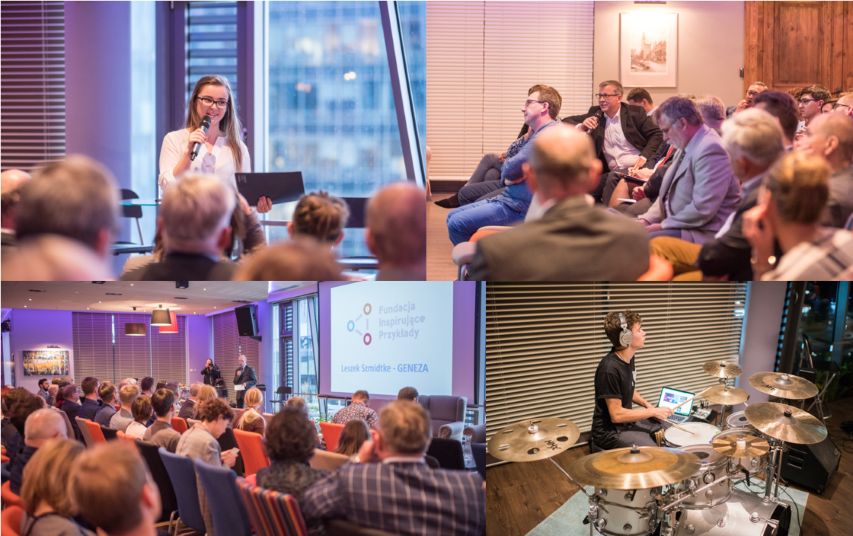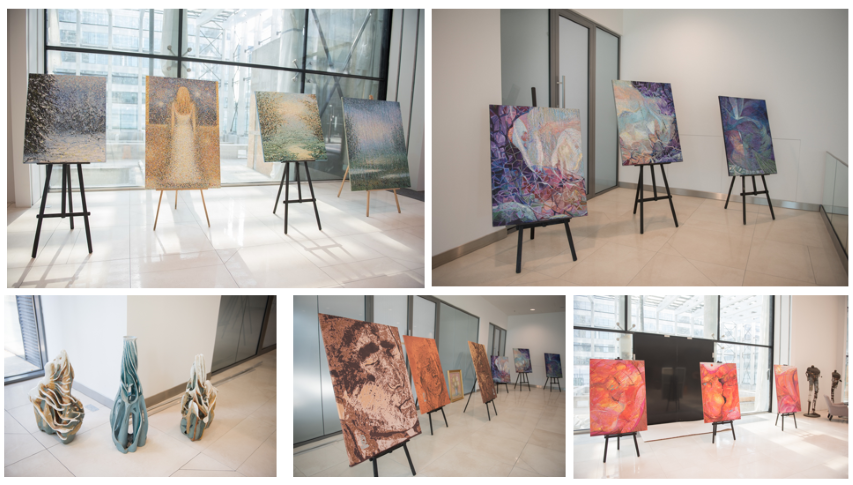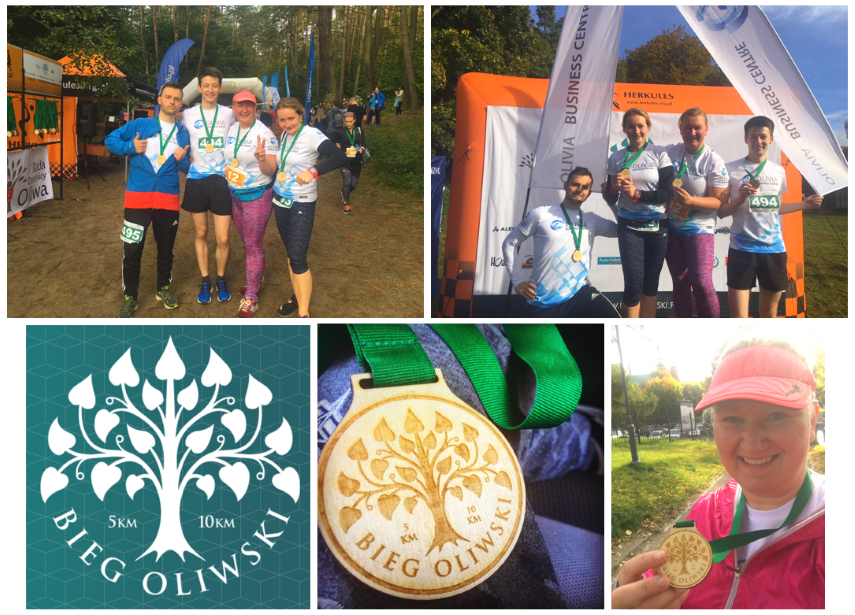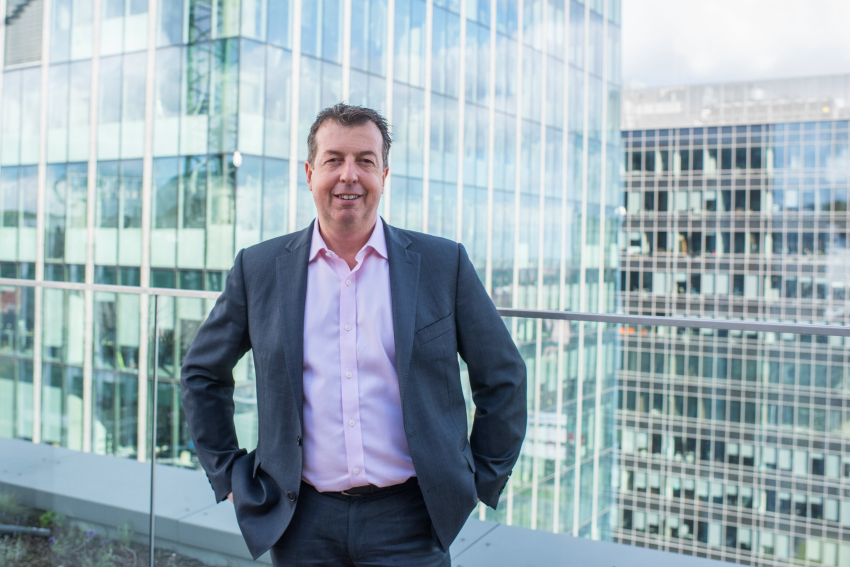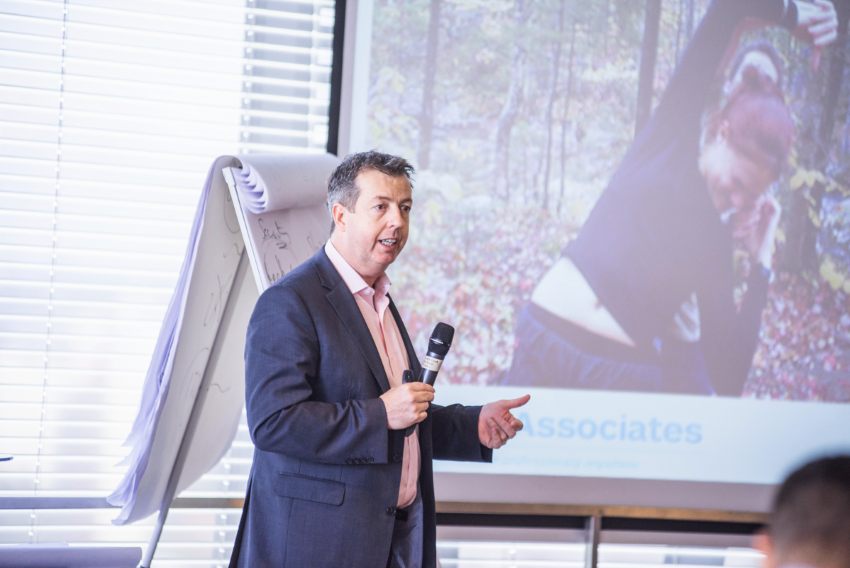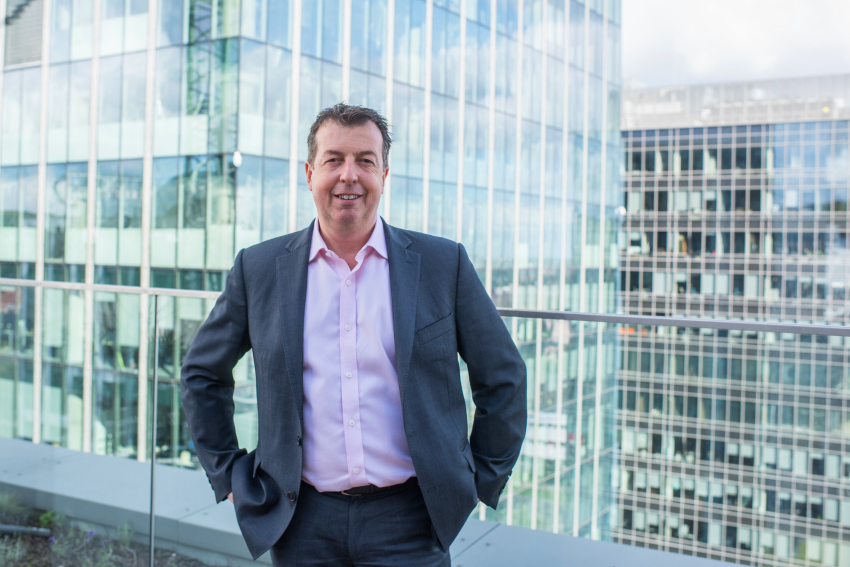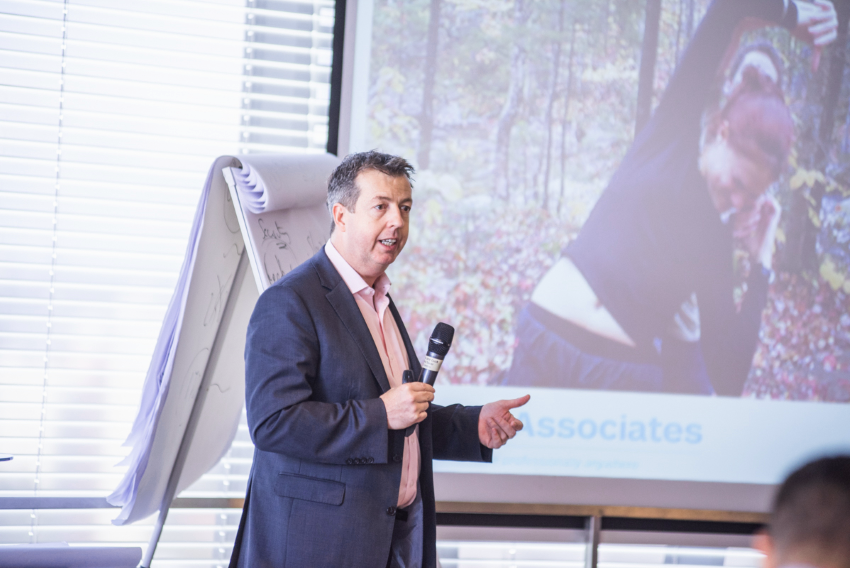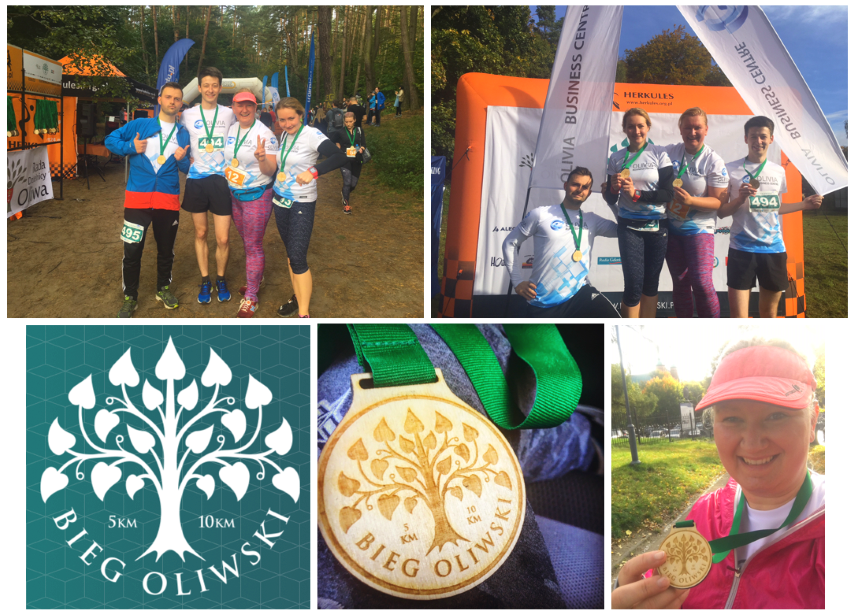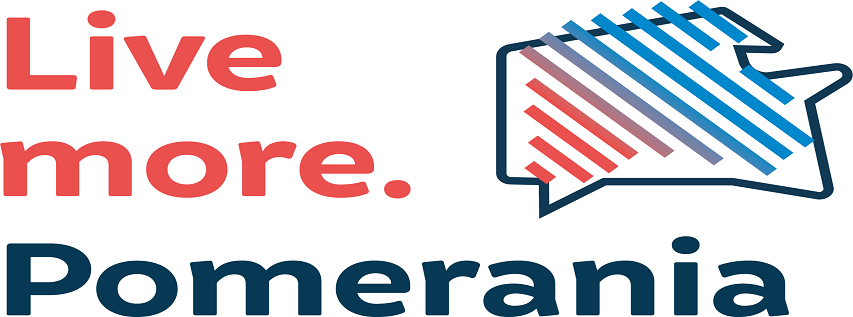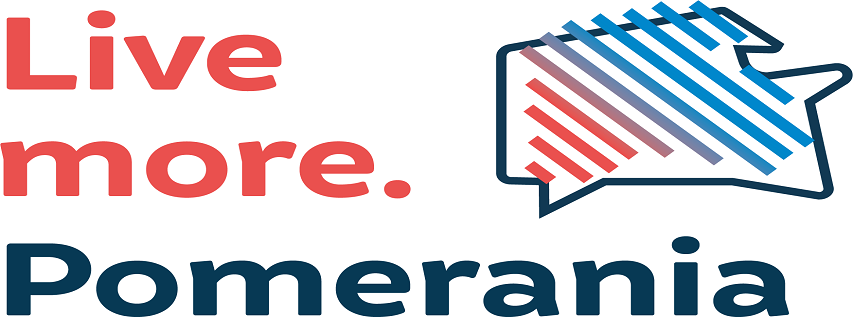An interview with Leszek Szmidtke, the originator and creator of the Inspiring Examples Foundation, and Agnieszka Zglinicka, a member of the Foundation’s board and the Director of the Small and Medium-sized Enterprises Area at Olivia Business Centre.
The pretext for our conversation is the meeting inaugurating the public activity of the Inspiring Examples Foundation, which took place on 5 October 2017 in the Olivia Sky Club in the Olivia Business Centre. The guests of the evening were the founders, organizers, friends and business, institutional and social partners of the initiative taking up the challenge of supporting young people in making choices regarding their development and future work in Pomeranian business.
During the meeting, the Foundation’s current activities were presented, and its creators also presented recommendations for further development of the projects implemented by the Foundation. The guests could listen to words of encouragement addressed to entrepreneurs and educators to help, together with the Foundation, children and young people find their way on the labour market.
The debate, moderated by Marcin Nowicki, was attended by: Agata Hofman, PhD – director of the Gedania 1922 Kindergarten and creoGedania school and the Polish Children’s Academy, Małgorzata Gwozdz – HR director at Olivia Business Centre, Dominika Michalska – a student of one of the Tri-City high schools and Paweł Musiał – founder of MpicoSys. Dr. Hofman pointed out m.in. attention to the need to create a space for the development of young people’s talents, as it is done by the Inspiring Examples Foundation. The whole meeting was crowned with a performance by Igor Falecki. The boy not only gave a demonstration of his amazing musical skills, but also told an equally amazing story of the development of his passion – playing the drums.
–/ —
Monika Bogdanowicz (Communication Olivia Business Centre): Leszek, as a publicist and commentator on social life, you have been involved for many years in presenting us people active in the field of business and economy in Pomerania. Your next, new role in the field of promoting professional activity is just taking shape and is starting to have a direct impact on our reality. What was the impulse to establish the Inspiring Examples Foundation and what is the main goal of its activity?
Leszek Szmidtke: (Inspiring Examples Foundation): When I realised that I would not be able to return to my previous profession due to a stroke – I was a journalist and worked at Radio Gdańsk and the Institute for Market Economics – I started to help my son’s class. I wanted the students to see what a piece of economy looks like when done by good Pomeranian companies. An example came from DCT, Remontowa Shipyard, Merkus store, and it all started with a small, young company Professor Why based in the O4 Coworking in Olivia Business Centre. A long start, but extremely important. I did it primarily with my son in mind. I hoped that by looking at different examples and dimensions of entrepreneurship and workplaces, it would be easier for him to make choices later on. Maciej Grabski was a witness, organizer and participant of the first visit and it was he who told me: “Make something more out of it”. Something more, that is, not only for your children…
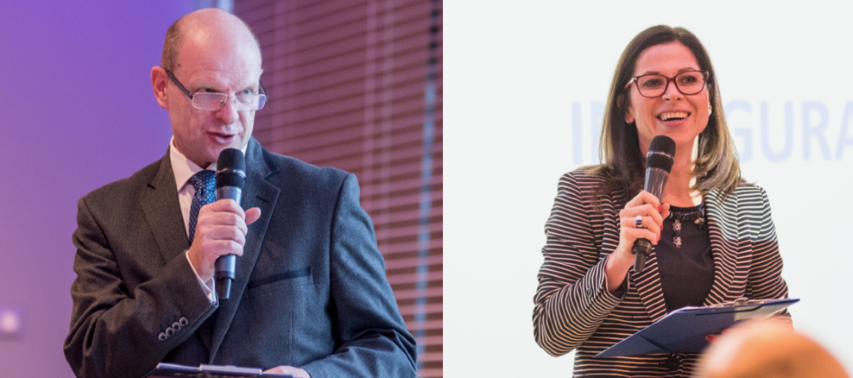
Fig. from the left: Leszek Szmidtke and Agnieszka Zglinicka
Monika Bogdanowicz: In today’s dynamically changing world, it is difficult to identify certain elements of activity that can contribute to the success of young people in the future. What is the uniqueness of your idea of combining activities aimed at young people and innovative companies in Pomerania in one project?
Leszek Szmidtke: Entrepreneurship is not the ability to make a lot of money. Entrepreneurship is, in my opinion, a way to live an active life. By showing concrete examples of entrepreneurship, we try to tell kids in different ways: “Look for your place in life – the one where you will feel good.” Many vocational schools visit companies as typical places of future work, here department X, there department Y. We show them differently. We talk about enterprises and entrepreneurs in terms of finding one’s own path, we talk about perseverance in pursuing a goal, getting up after a fall, because it happens, and about courage. For me, it is important that a young person learns how to find their place and an occupation that will give them a sense of fulfillment. That’s how I define success. Let him look for and make mistakes when the costs are not too high.
Companies are extremely ingenious in managing the two hours that students spend with them. No two visits are the same. It’s a wealth that sometimes makes your head spin.
Our proposal is systemic and is addressed mainly to high school students who make important life decisions around their final exams. We want to reduce the number of random choices. We don’t just offer company visits. We have prepared a number of additional, attractive proposals based on our allies: Talent Development Centre, Business Incubators “Starter” and “Clipster”, Coworking O4, Pomerania Development Agency, Voivodeship Labour Office. We want to motivate students to go beyond certain ruts; That is why the infoShare foundation conducts classes “Coding for humanists”, Natalia JadźkaRysuje Klonowska “Visual Thinking”, and Rafał Dadej workshops on project management “The best party in the village/on the divide”. This is how we look for new solutions. In fact, we already have other crazy ideas that we will implement in 2018.
Monika Bogdanowicz: Agnieszka, what do you think young people who are facing the choice of a life path, a direction for further education and an apprenticeship in the profession need the most?
Agnieszka Zglinicka: There are many variables, but finding what a young person is really interested in and what they are or can be good at seems crucial. Such awareness, recognition of interest and passion can completely change the current functioning and even the whole life. This, in any case, could be a good start.
Monika Bogdanowicz: How can you directly help the participants of the action related to the foundation’s projects? How do companies that are open to participating in your initiative benefit from the project?
Agnieszka Zglinicka: Let me quote a sentence of Confucius, which illustrates our idea well: “Tell me and I’ll forget. Show me and I’ll remember. Let me do and I’ll understand.” This is what we have based on the activities of the Inspiring Examples Foundation. The Foundation is to open doors, giving a chance to get to know and better understand the modern business world.
In addition to visits to companies, we have workshops that allow you to get to know yourself better and acquire important skills, not necessarily related to the field of education. Asking questions, formulating problems, looking for answers on your own, but also teamwork are no less important than developing the skills necessary to cope professionally in the future.
During company visits, students also carry out mini-projects. Their fresh, sometimes even abstract view of the problem, not limited by excel or budgets, is an invaluable lesson also for managers hosting students. Companies have a chance to get to know their future staff, tell them what is really important at work and what skills, a specific job really requires from them.
People who organize visits to companies face difficult matters. With teenagers, who are not so easy to get away from their smartphones. You have to act and talk in a different way. Therefore, the program must be attractive and engaging. The most important thing in the whole project is the young people taking part in it, their future. Let’s not forget that today’s teenagers will shape our environment tomorrow. Today, we can help a little to make their work enjoyable – it will pay off for everyone.

Monika Bogdanowicz: At what stage of development are the foundation’s projects at the moment? Which companies have joined the Foundation’s activities so far?
Leszek Szmidtke: We have started the last preparatory stage before the start planned for 2018. Then we will propose a shape that will bring us closer to our goals. By the end of this year, there will be about 100 companies cooperating with us. We are very close to that number. What is important here is the quality and willingness to help. The companies gathered are an elite, carefully selected, because being an inspiring example brings with it certain responsibilities. It is not an easy task, especially since there is no single model of this type of activity, so the development of the Foundation requires a lot of effort and creativity from us. We have similar expectations of schools. It can’t just be a trip.
Monika Bogdanowicz: From the very beginning, the project has been supported by active people who create and develop leading companies and institutions in Pomerania. How do you manage to convince managers to participate and get involved in creative work with young people?
Leszek Szmidtke: It is our great asset that we managed to gather many wonderful people around the idea. Each of them is doing something and is working somewhere. Increasingly, business owners and CEOs understand that they should not only make money, but also create “something more”: for others. They see that it is necessary to go beyond their offices and gates. And increasingly, they are doing so.
The project is based on the goodwill and desire of many people. I don’t have the slightest problem with involving companies. Worse, schools are still too often closed to the world around them. I console myself that this is just the beginning and after crossing a certain limit, an avalanche will start.
Although our idea is supposed to stimulate entrepreneurship, I think that few students who take advantage of the proposal will start their own businesses. We assume that in 2018 there will be approx. 3-3.5 thousand young people; 2 or 3% of them will set up their own business. Others will look for jobs in existing companies and institutions. Let them do it, knowing what attracts them or what they are not attracted to.
I am convinced that when entering the job market, they will start their search with the companies they visited and which made a good impression on them, because they saw people working there with passion, energy and joy. Someone may say that there are no such companies in our country and that this is naivety. It’s just that I know such companies and these companies are involved in our project. Among the schools, I have also found some that I can say that I would like to send my children there. Of course, unfortunately, there are still some to which I would not send…
Monika Bogdanowicz: Leszek, your vision of the Foundation’s development assumes a real change in our society and the creation of a modern formula for educating young people. Do you encounter a lack of interest, criticism? It seems that it is difficult to break the pattern of a school trip to the workplace…
Because we are creating something new, we are making and will continue to make mistakes. At the same time, we are always open to discussion, to dissent, to constructive criticism. And still, together with those involved in the project, we are looking for ideas and examples that will be inspiring for young people.
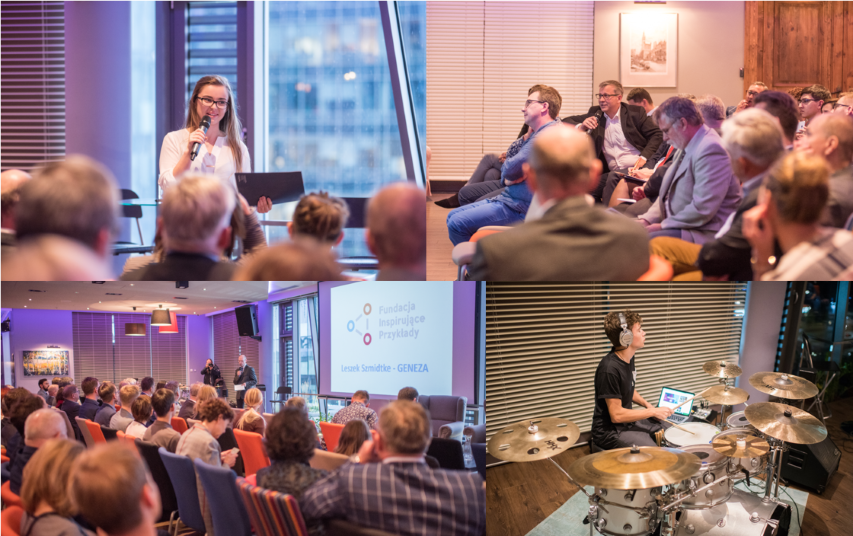
Monika Bogdanowicz: The first year of operation is actually a big testing ground for the organizers. What was the most difficult lesson for you, and what is your daily inspiration to take on new challenges in your work on the development of the Foundation?
Leszek Szmidtke: Difficult lessons are almost every day. We have to come up with unique solutions, which then have to be verified in practice. We do not always meet with understanding, especially of teachers, especially since we also expect commitment and work from them. We are looking not only for the best ideas for students in terms of content and form, but also beneficial solutions for companies. Young people are very creative, they are looking for creative solutions. And our entrepreneurs are increasingly looking to them for inspiration.
Monika Bogdanowicz: With today’s event, the Inspiring Examples Foundation has started its public activity. How do you imagine the materialization of your vision and what should you wish for the next stages of development?
Agnieszka Zglinicka: In a few years’ time, we would like to see the effects of our current activities. To see happy young people, students learning what they are really interested in, aware of what is important to them and entrepreneurs to whom they want to apply, or are already applying at university. Satisfied, complementary and learning from each other’s young employees and their employers.
Leszek Szmidtke: I will only add that in 2018 we want to refine the idea, stabilize it and give it a long-term character. Then we can start thinking about scaling the project. In addition, we dream of creating a healthy relationship between the business world and schools. A place such as Olivia Business Centre is perfect for this.
–/–
Leszek Szmidtke , a historian by education, who feels quite comfortable in the economy. Journalist of Radio Gdańsk (over a quarter of a century). Winner of several international awards for his reportages and other broadcasts (mainly historical) – in a way, he is still a journalist, but in a different capacity than before. A long-time collaborator of the Institute for Market Economics. Health problems closed one chapter and opened a new one. Long-term rehabilitation (still ongoing) and help gave me the will and strength. Together with Maciej Grabski (or more precisely, his company 11 Cards) he founded the Inspiring Examples Foundation (she was one year old in August). The first steps were in the autumn of last year, and in the autumn of this year we will be quite close to the final shape and the continuation will follow…
Agnieszka Zglinicka, a specialist in management, with many successes in the area of banking. Today, she is a committed member of the board of the Inspiring Examples Foundation, Director of the Small and Medium-sized Enterprises Area at Olivia Business Centre, Director and creator of the Olivia CONNECT project – a space that brings together business support and personal development organizations. Propagator of good education.
Inspiring Examples Foundation – runs a program addressed to young people aged 16-18 based on inspiration through attractive examples of Pomeranian entrepreneurship. The aim of the project, which was created in cooperation with regional business, is to develop attitudes conducive to entrepreneurship and to raise awareness of the need to shape qualities that are not only needed by future company founders or employees, but also by citizens. The initiative not only presents students with the existing opportunities to create jobs on their own, but also supports the ability to see the need to adapt to the ever-changing requirements of the labour market (with an emphasis on the need for further education). In the Pomeranian region, especially in Gdańsk and Gdynia, there are many development opportunities for young people, mainly thanks to existing universities and enterprises – including very advanced technologies, which are increasingly thinking about their future in the long term. The richness of the Tri-City is also manifested in the existence of many educational business environment institutions, such as: Business Incubator Starter, Pomeranian Science and Technology Park or the planned Inspiration Centre, in the Olivia Star building, in the Olivia Business Centre.
Contact with the Foundation:
hive. Grunwaldzka 472, Gdansk
phone +48 575 008 711
Email: info@inspirujaceprzyklady.org.pl

